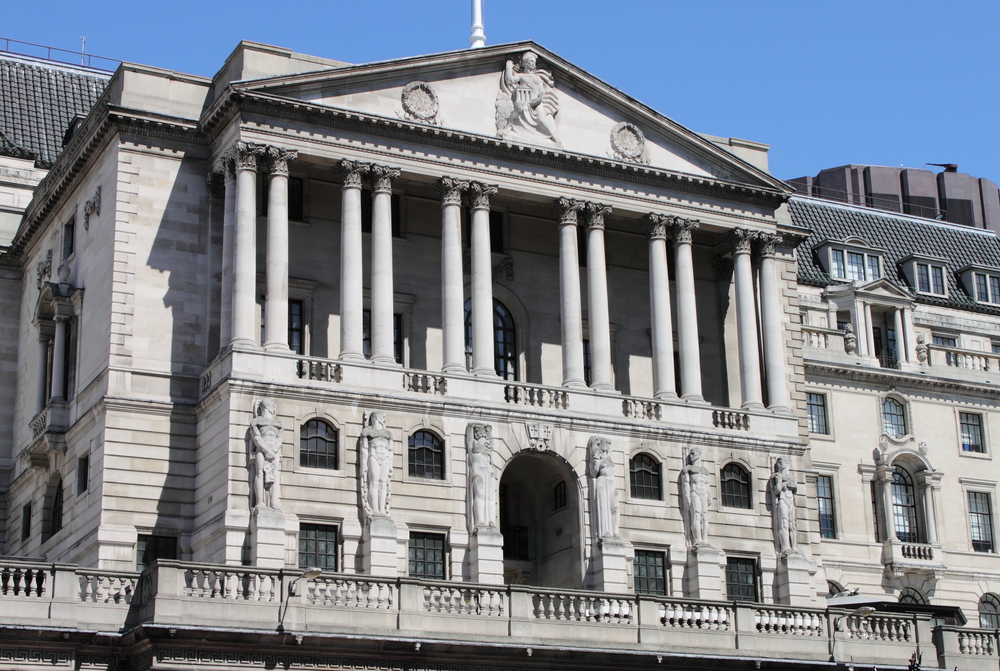News
Experts predict base rate to rise to 4% – how will this affect mortgages and savings?

Guest Author:
Nick CheekIn December, the Bank of England’s Monetary Policy Committee (MPC) increased the bank base rate by 0.5% putting it at 3.5% – the ninth consecutive uplift.
Next Thursday 2 February, the MPC will announce whether we will see a tenth consecutive increase in the base rate. Although experts are very much in agreement that it won’t really be a question of ‘whether’ but just ‘how much’.
The majority of economists believe that the Bank will raise rates by another 0.5%, taking it to 4%.
Ashley Webb, UK economist at Capital Economics said: “Inflation is falling, but domestic inflationary pressures are proving persistent as the labour market remains tight and wage growth remains strong.
“Combined with a more resilient economy than the Bank of England and we had expected, that will leave the Bank concerned that inflation may not fall back to 2%.
“We think the Bank will raise interest rates by 50 basis points (bp) from 3.5% to 4% at the next meeting on 2 February, and to a peak of 4.5% in the coming months.”

Wellness and wellbeing holidays: Travel insurance is essential for your peace of mind
Out of the pandemic lockdowns, there’s a greater emphasis on wellbeing and wellness, with
Sponsored by Post Office
James Smith, developed markets economist at ING, also predicted a 50bp increase in February, with a smaller uplift in March.
He said: “It looks like the combination of persistent wage pressures and higher core services inflation will unlock one more 50bp hike at the February meeting, potentially followed by a final 25bp move in March.”
Susannah Streeter, senior investment and markets analyst at Hargreaves Lansdown, agrees: “A 0.5% hike is expected taking the official bank rate to 4%, with another rate rise to come.
“There is still a long way to go in cooling inflation, and interest rates still look set to rise to around 4.5% before the Bank presses pause on hikes. This will pile more pressure on borrowers, will further weaken a rapidly slowing housing market, and risks reversing the small rise in consumer confidence.”
Fix your mortgage and switch your savings?
The (potential) 0.5% rise in the base rate will undoubtedly have an effect on both mortgages and savings – and both borrowers and savers will be questioning whether to fix and switch respectively.
The mortgage conundrum
Sarah Coles, senior personal finance analyst at Hargreaves Lansdown, has spelled out the tricky situation that some mortgage borrowers could find themselves in next Thursday.
She said: “Fixed rate mortgages are still horribly expensive. However, a 0.5 percentage point rise is already largely priced in, and because inflation expectations have dropped significantly, fixed mortgage rates are expected to continue their gradual retreat from the peak. It means anyone coming to the end of a fixed rate deal needs to decide whether to fix now or wait and see if they can get a better deal.
“The market is broadly expecting another rise sometime in early 2023, so the squeeze won’t ease in the short-term either. For some people, this will convince them to pay more for a fix today, and take the uncertainty out of the equation.
“For others, the extra cost today is worth the potential saving from a cheaper fix further down the line. They might hang on with a pricey standard variable rate (SVR) or move onto a tracker.
“Some will use a tracker for the short-term, until fixed rate deals are low enough. If you’re considering this, you need to be confident that the fees you pay for an extra remortgage will save you enough in the long run to make it worthwhile – and because you have no idea how far fixed rates will fall, this will always be a gamble.
“Others will stick with the tracker for the full two or five years, and see where fixed rates are at the end of it. This provides the opportunity to benefit if rates do fall further down the line.”
Keep an eye on savings
Coles also noted that the rate rise would be ‘a boon for easy access savers’ but would be of very little benefit to fixed rate savers.
She said: “Easy access savers will see rates continue to edge up. They’ve done so for the best part of a year now, and although they’re moving in tiny increments, if you haven’t switched for a while, you could make substantially more by tracking down a competitive deal.
“[On the other hand], it looks distinctly like fixed rate savings have peaked, and a rate rise isn’t going to change this. It’s already priced in, and the banks are more concerned about what’s going to happen to rates further ahead.”
Related: Find the best savings rates this week
Beat expensive fixed rate mortgages with these three alternatives